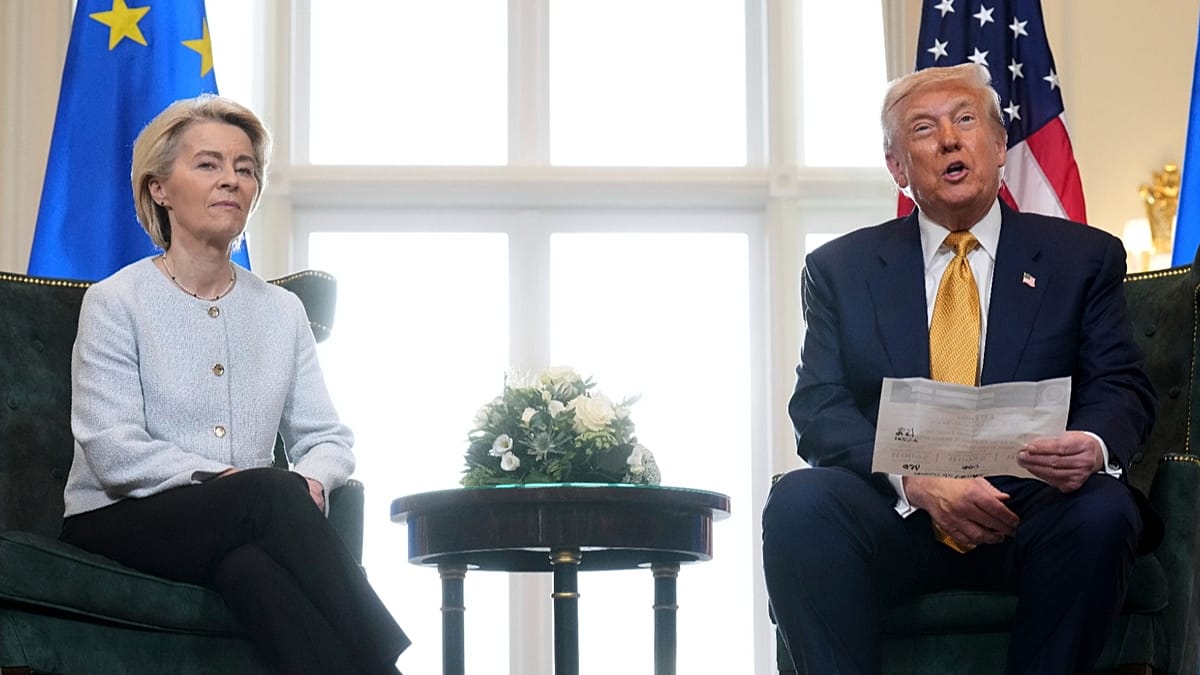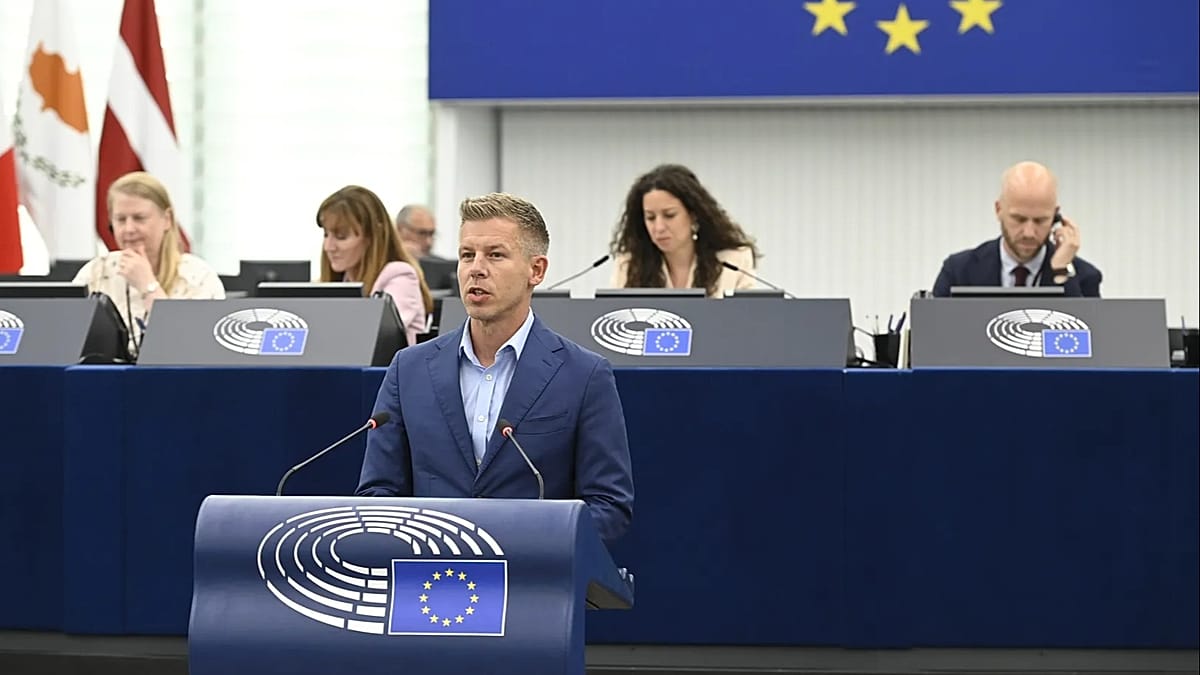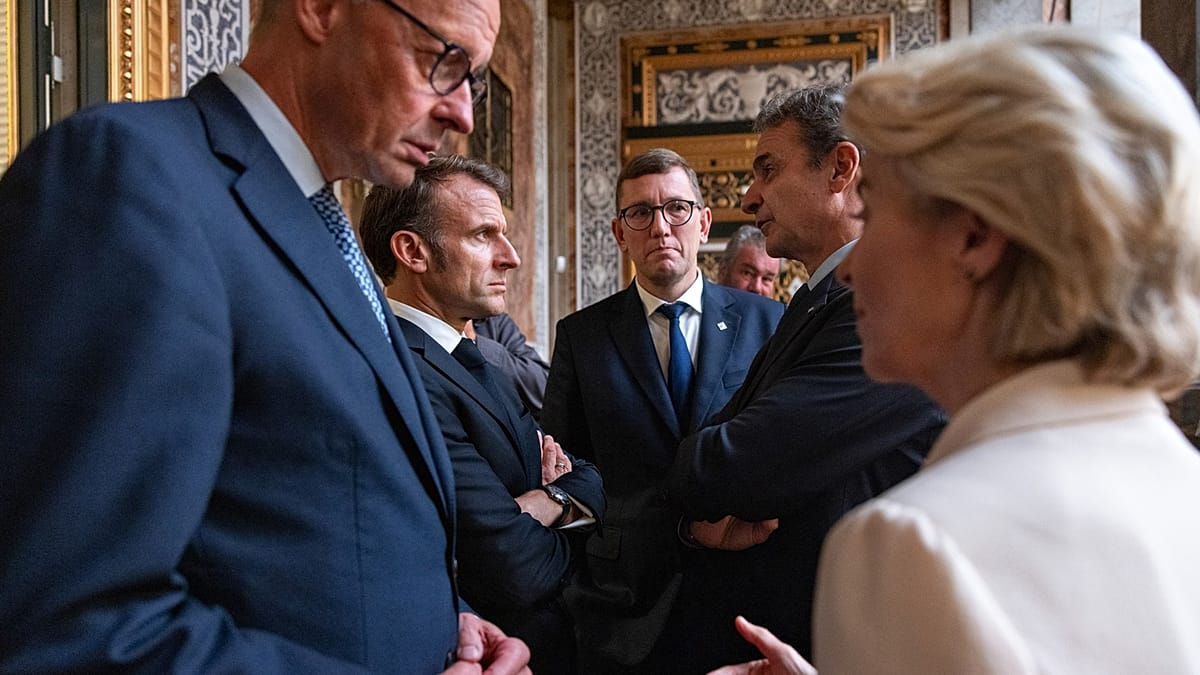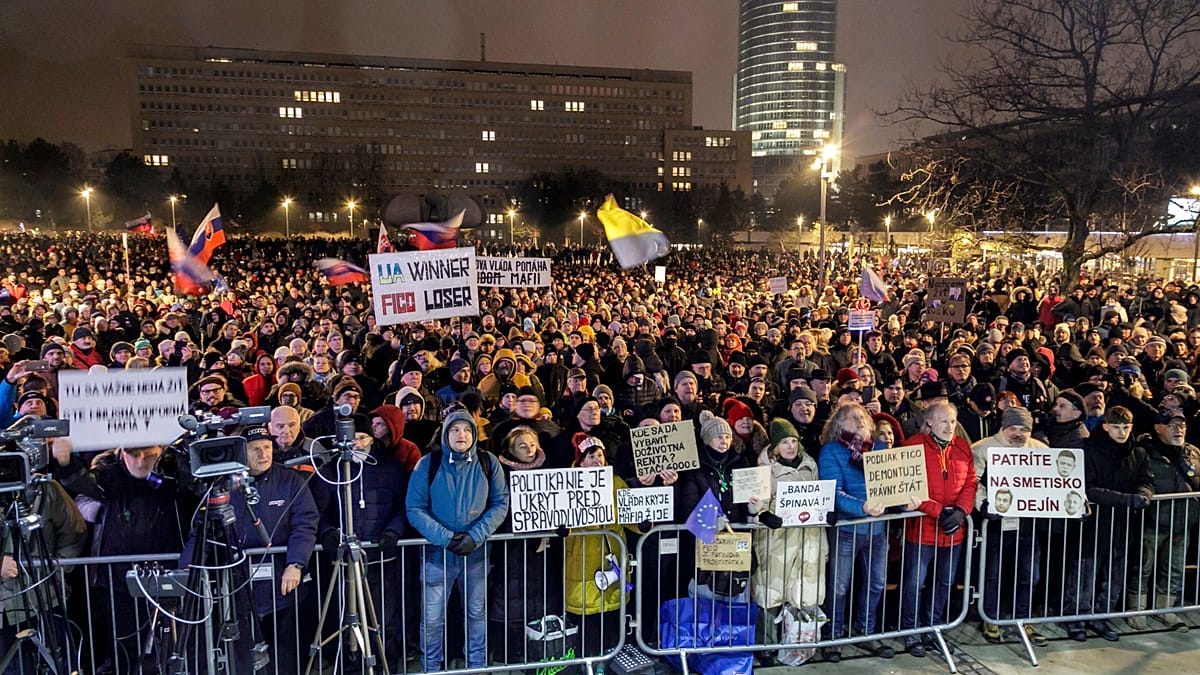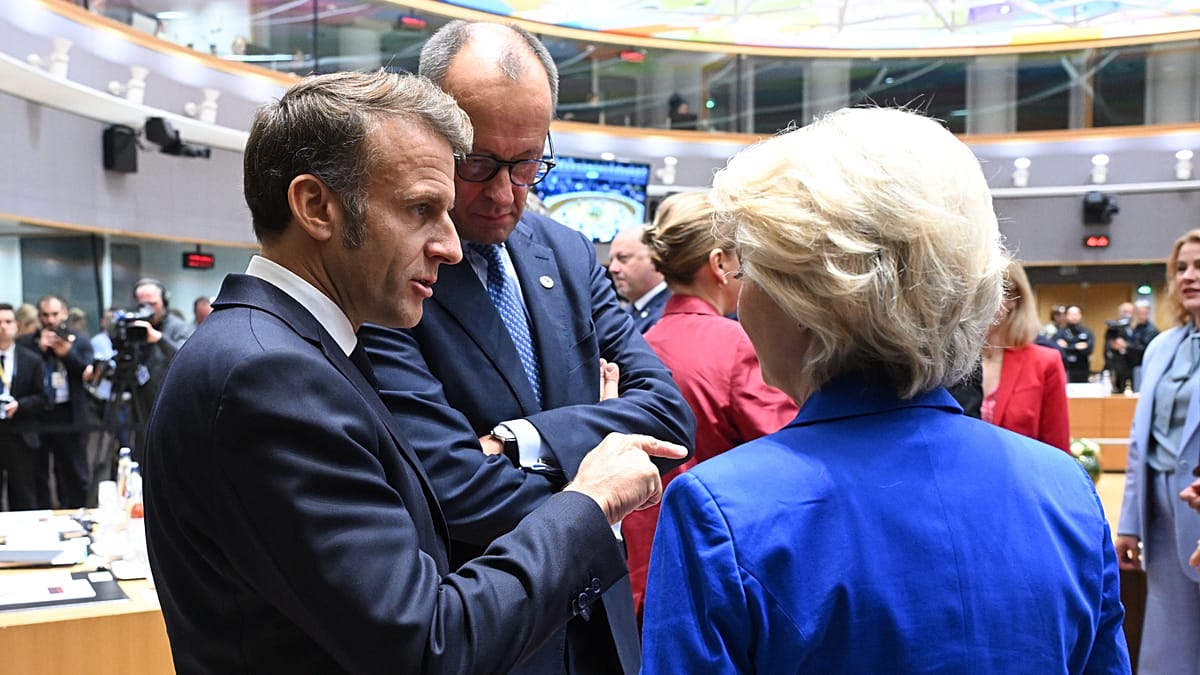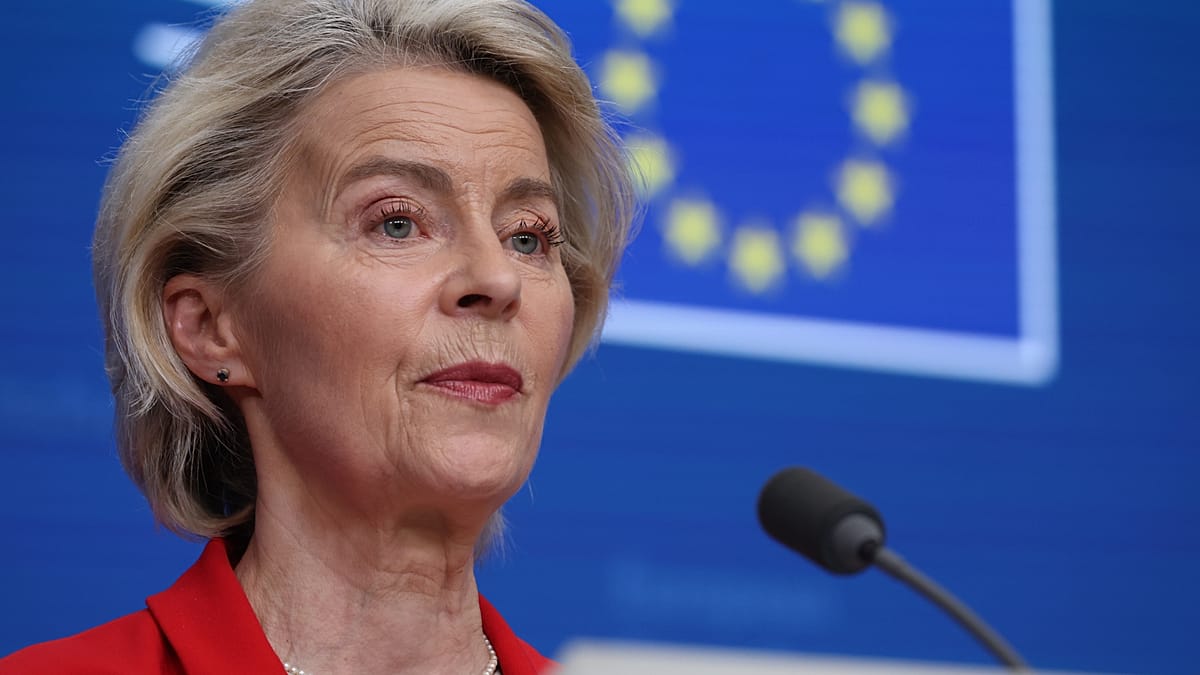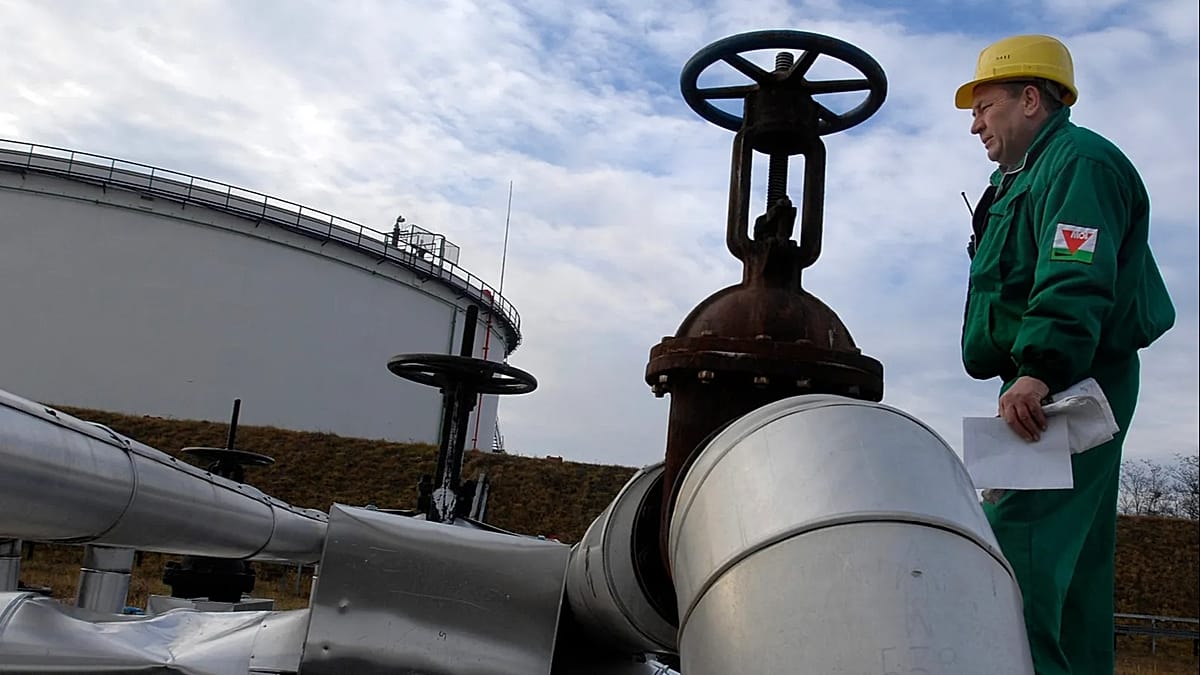
EU sources have told Euronews that the European Parliament is opposed to granting landlocked member states exemptions to import oil and gas from Russia in the event of a sudden supply disruption.
The bloc is currently discussing ways to ban Russian energy imports, an initiative that follows a June proposal by the European Commission to end all EU energy dependency on Moscow by 2027.
Talks between EU governments, the Parliament, and the European Commission are still underway. An informal consensus has been reached under which more energy import-dependent member states, such as Hungary and Slovakia, would benefit from an exemption allowing them to import Russian energy in case of an energy supply crisis.
But lawmakers argued that no loopholes or exemptions should be granted so as to ensure Moscow’s fossil fuel exports are no longer a part of the EU’s energy mix.
The EU27’s Russian gas imports – pipeline gas plus liquefied natural gas (LNG) – represent 12% of the bloc’s total gas imports since August 2025, according to the Commission’s annual State of the Energy Union report, published on 6 November.
The figure is a stark decrease from 45% of the bloc’s 2021 imports, but lawmakers have pointed out it still amounts to €210 billion sent to Moscow’s coffers.
Latvian MEP Inese Vaidere of the European People’s Party told Parliament last month it was “incomprehensible” that the bloc was still buying Russian energy after three years of war in Ukraine.
“The Parliament’s position is much stricter [than the Commission’s proposal]: to ban both Russian gas and oil imports, including through intermediary countries, from 1 January 2027,” she said in Strasbourg as the legislation progressed.
“Moreover, a temporary suspension of this ban is not permissible under any circumstances.”
“Unfortunately, the position of the member states is much weaker – it only provides for a gas ban and only from 2028, granting unjustified exceptions to Hungary and Slovakia, which have alternative supply options,” Vaidere added.
Some lawmakers have argued that while they recognise the gas supply difficulties specifically facing landlocked countries, pipeline infrastructure projects underway in Bulgaria and Romania could provide a reliable alternative and diversify the region’s energy market.
Some of the projects referred to by the Parliament are estimated to be operational by 2026 and 2027, which lawmakers argue would give energy operators enough time to adjust to new providers.
An EU diplomatic source told Euronews that the Parliament “sees loopholes everywhere and wants to close them” arguing the chambers’ perception “lacks rigorous technical knowledge” on the matter.
Despite the mismatch, another EU diplomat said all the EU negotiators are keen to reach a political agreement before Christmas. The next round of political talks is due on Thursday.
Romania’s new gas pipeline
Romania’s energy minister, Bogdan Ivan, hailed the completion of the Tuzla-Podisior pipeline in July as a defining moment for the country.
“Romania is entering a new stage: from the potential to the concrete capitalisation of the resources of the Black Sea,” he wrote.
The 308 km Tuzla-Podisior pipeline is part of the Neptun Deep project, a large-scale offshore natural gas operation in the Romanian Black Sea that could provide an alternative to Russian gas for countries such as Hungary and Slovakia.
According to Transgaz, the Romanian operator of the national gas transmission system, Neptun Deep will allow Bucharest to undergo a phased capacity increase with Hungary, from the current 2.63 billion cubic metres per year to 2.98, 4.38 and 5.32 billion by 2029
But from the Hungarian government’s point of view, the legislation under discussion is a matter of energy sovereignty.
“They call it diversification, but in reality, it cuts one of our vital oil routes,” said Hungarian Foreign Affairs and trade minister Péter Szijjártó.
“The Commission completely ignores that this regulation destroys the energy security of EU member states. Energy should not be about politics.”
Nonetheless, according to Commission documents, Energy Commissioner Dan Jørgensen has recently met with delegates from Hungarian multinational oil and gas company MOL to assess the feasibility of phasing out Russian energy.
The Danish Commissioner discussed diversification options for oil and gas, including using the Croatian Janaf pipeline as an alternative to the Russian pipeline Druzhba, which has served European landlocked countries in the region for a long time.
The Janaf pipeline, also known as Adria, runs from the Omišalj terminal on the Adriatic Sea and has branch lines that reach refineries in Croatia, Hungary, Serbia, Slovakia and Slovenia.
However, MOL representatives argued that the Adria pipeline has not yet grown to meet the challenge and regretted the lack of investment by Croatia.
“The development of the Hungarian section alone is not enough, and we still do not have reliable information about the condition and capacity of the Croatian section,” MOL spokesman Ambrus Halász told Euronews. “All we know so far is that Janaf, in breach of contract, was unable to deliver the ordered quantity on time.”
Homayoun Falakshahi, senior energy analyst at trade intelligence agency Kpler, said the impact of a full EU ban on Russian fossil fuels would “fall disproportionately” on the landlocked member states that still rely on the Druzhba pipeline for crude supply.
“Janaf can help Hungary and Slovakia end their dependence on Druzhba, just like the Czech Republic stopped importing Russian oil and is instead relying on the Transalpine pipeline,” he told Euronews. “But this would come at a higher cost for MOL, the importing company, due to higher feedstock prices, and would also require some technical adjustments at the refineries.”

